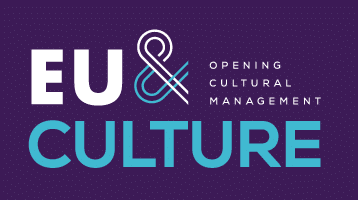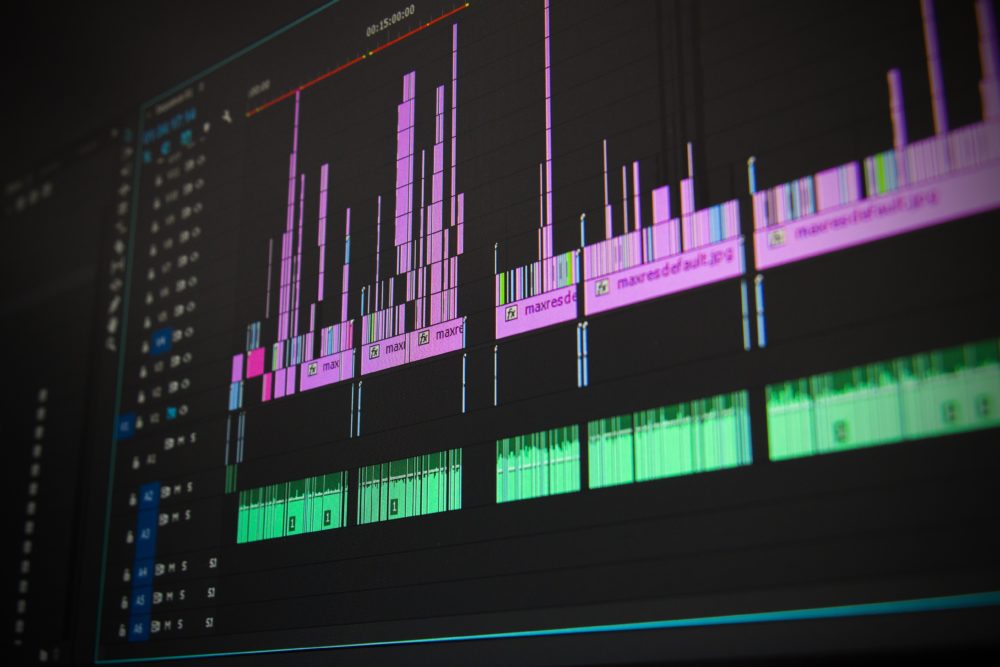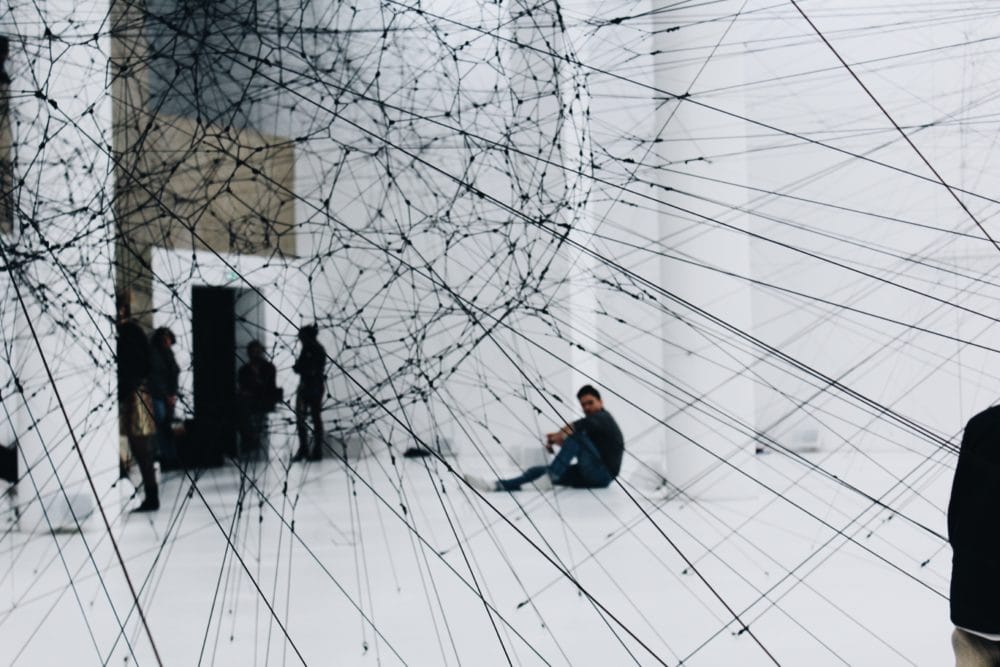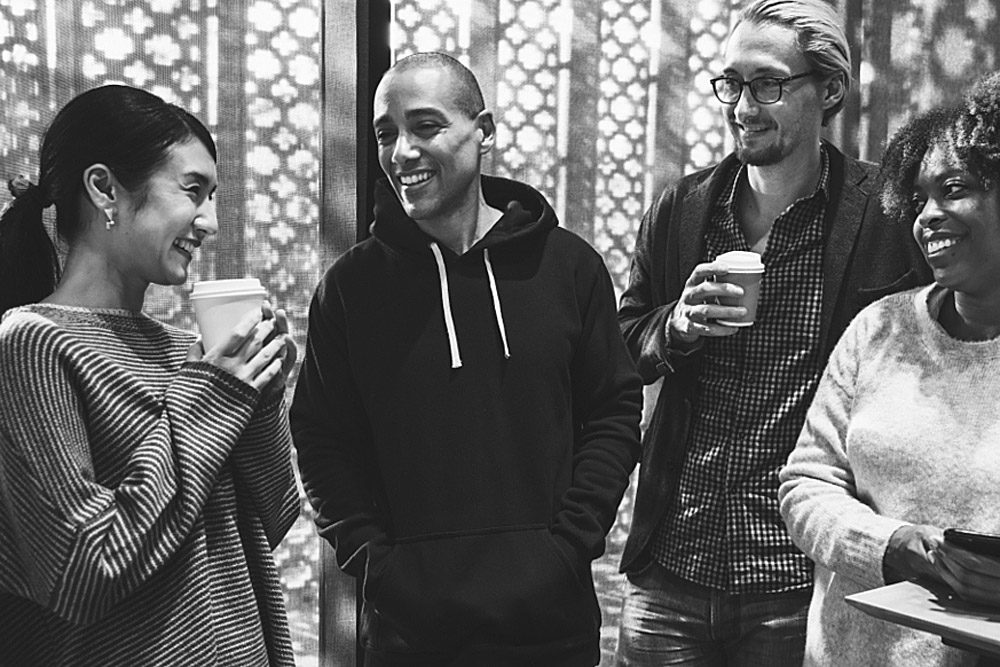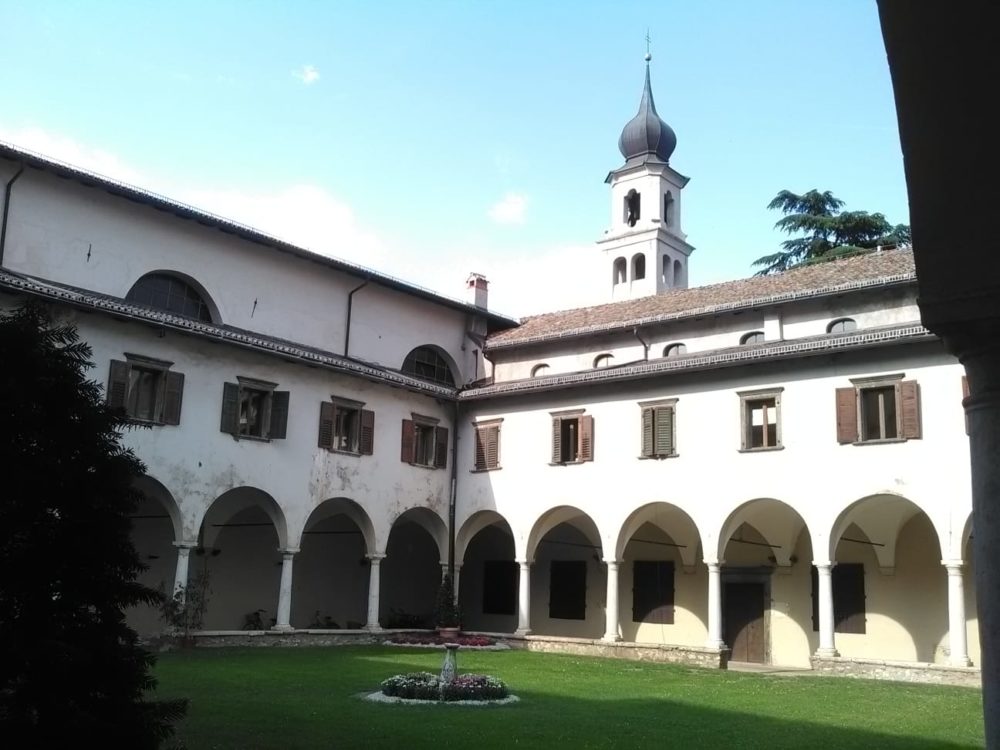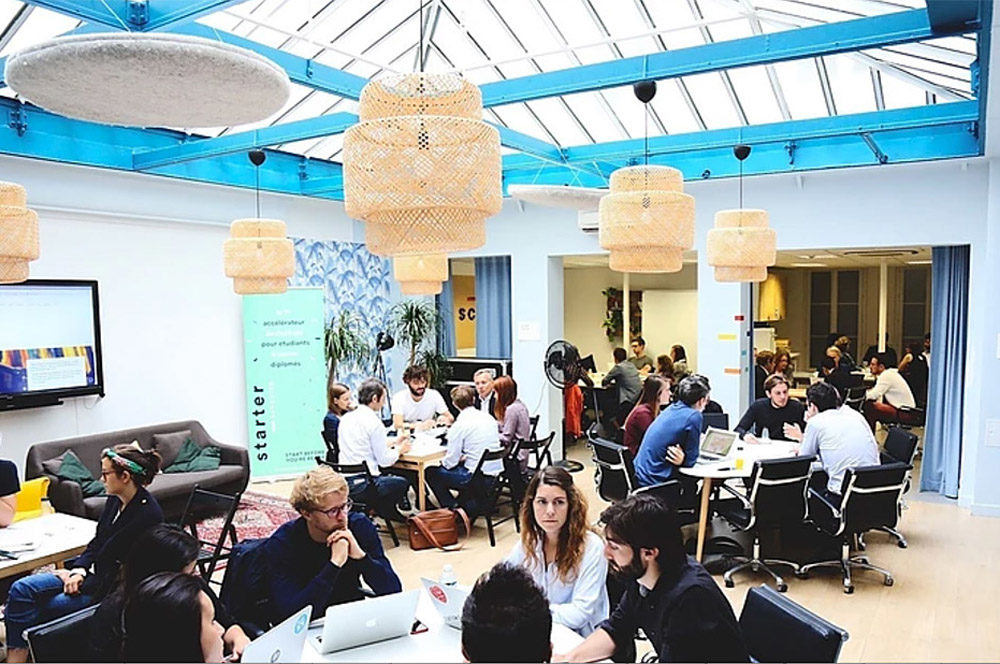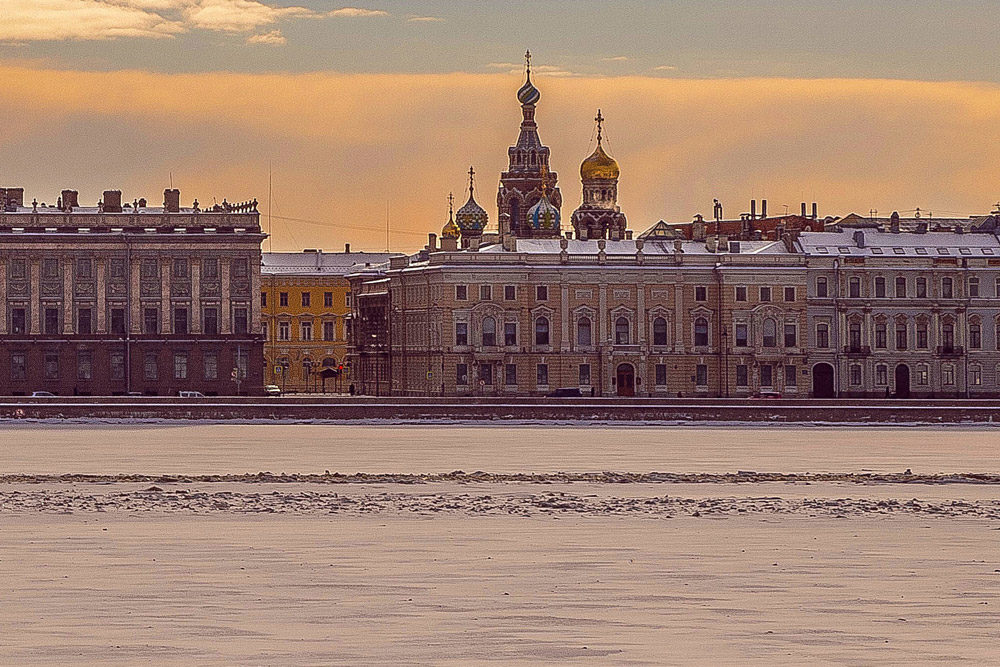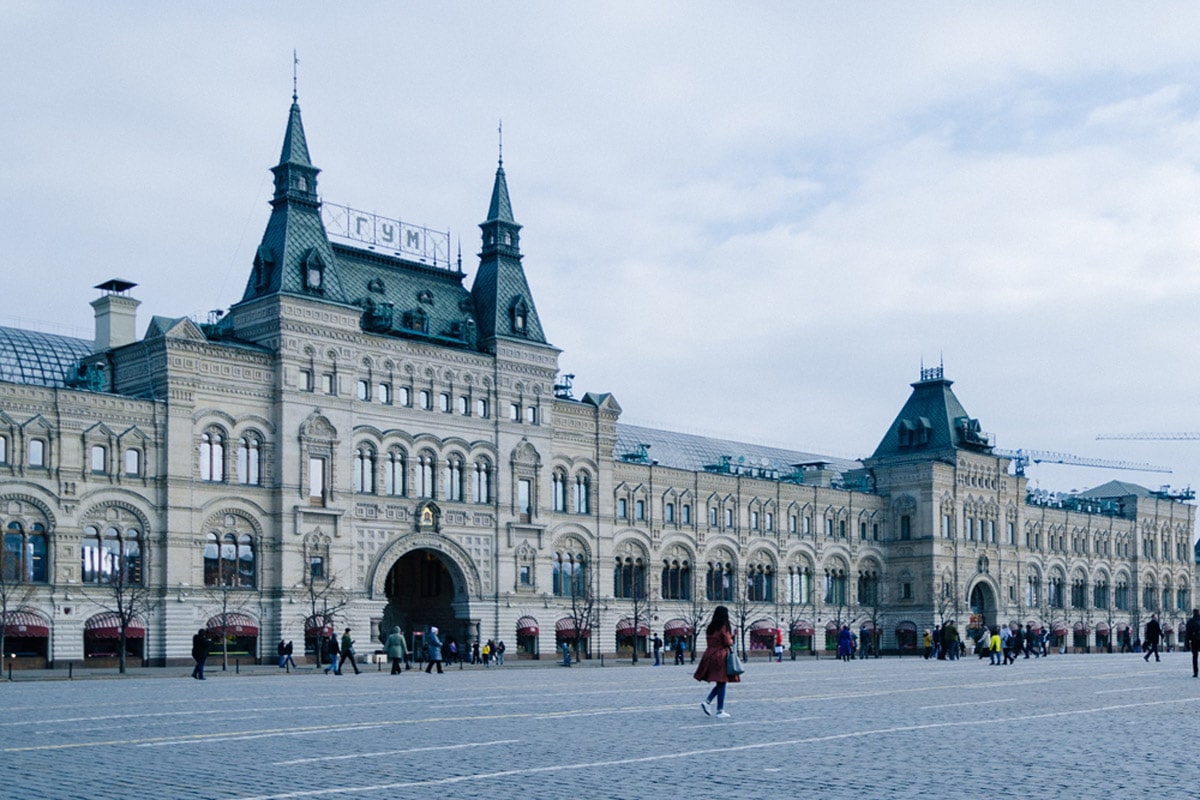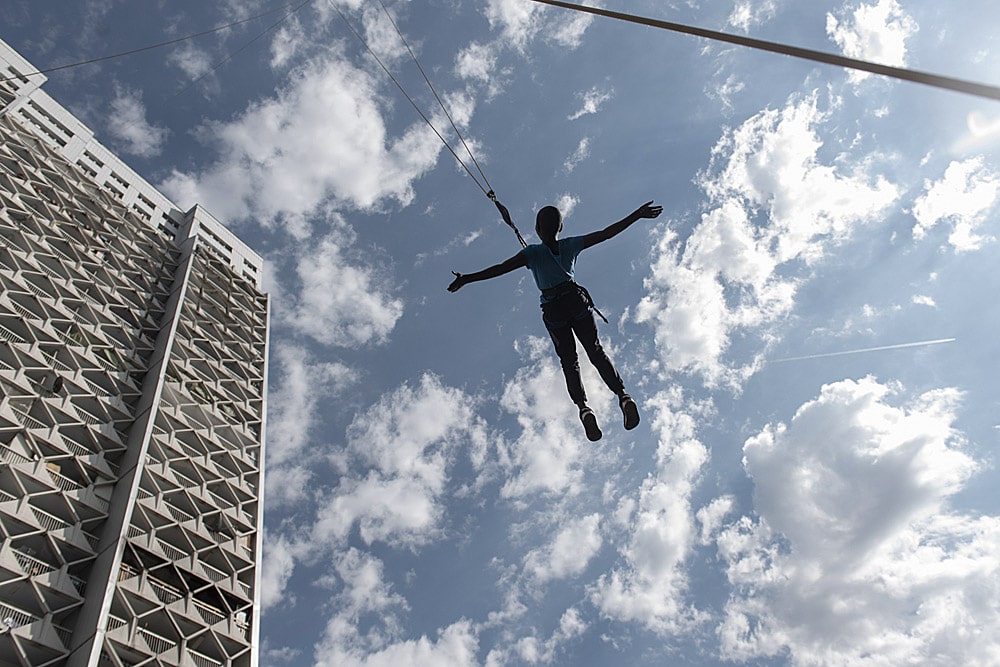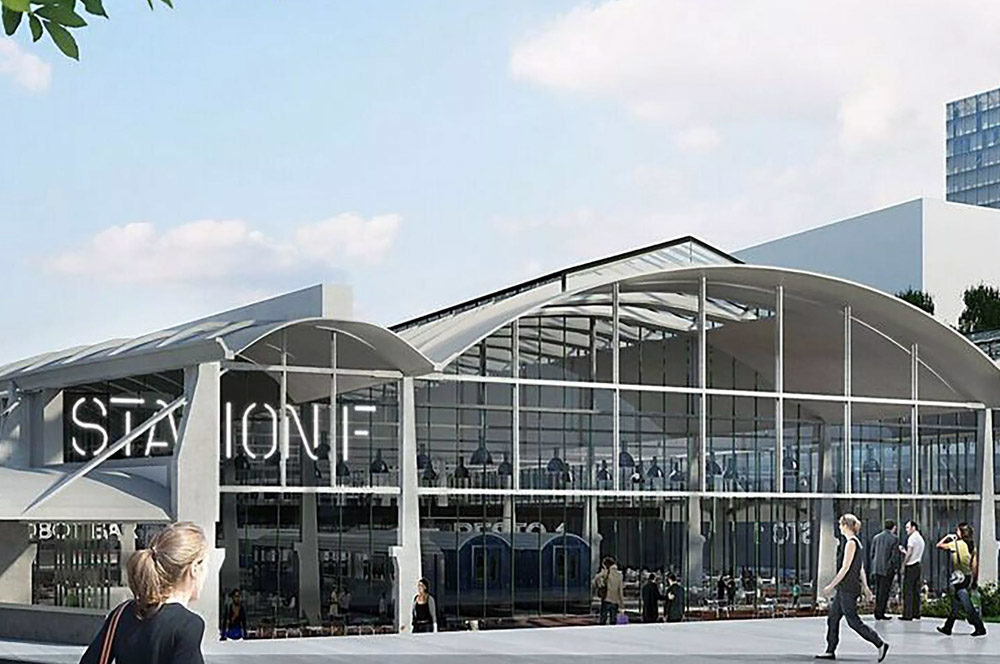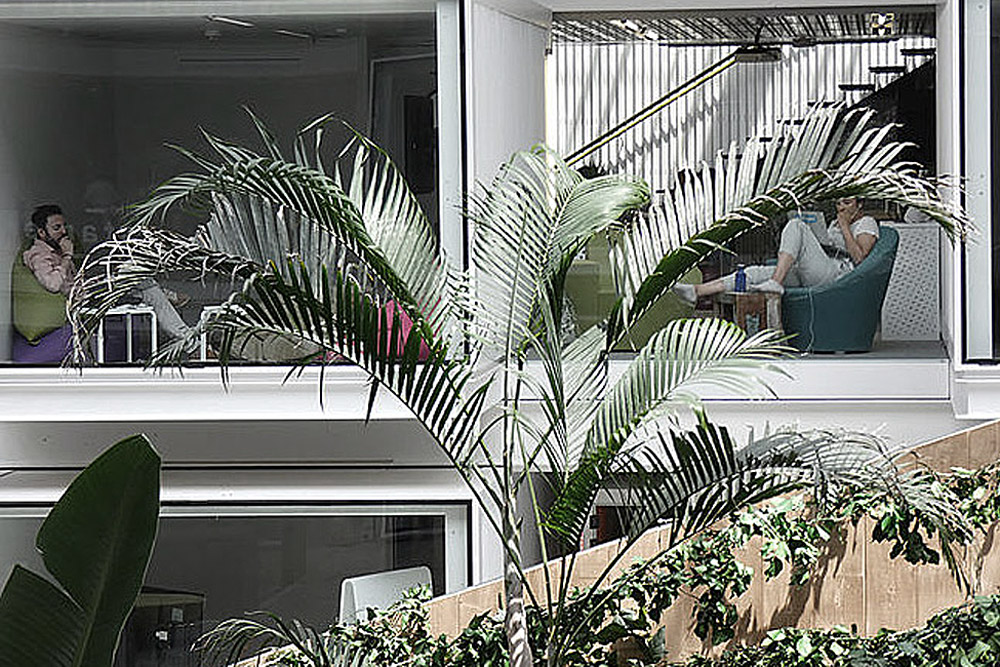Joan Blachere, Directeur de la création
PORTRAITS → Young culture professionals
La série Portraits explore notre secteur culturel contemporain depuis la perspective de ses jeunes travailleurs. Beaucoup d’entre eux ont choisi la culture car elle les rendait fiers, donnait du sens à leur travail, inspirait une vocation. Qu’en est-il de ce secteur culturel idéal aujourd’hui ?
Joan Blachere est Directeur de la création dans l’industrie du jeu vidéo à Bordeaux (France). Expérimenté à la fois en marketing et en game design, il évolue rapidement sur différents postes de cette industrie si particulière, lui permettant de réunir expertise et passion. Désormais associé, il vit au plus proche des enjeux stratégique d’une structure, pour servir une équipe à taille humaine.
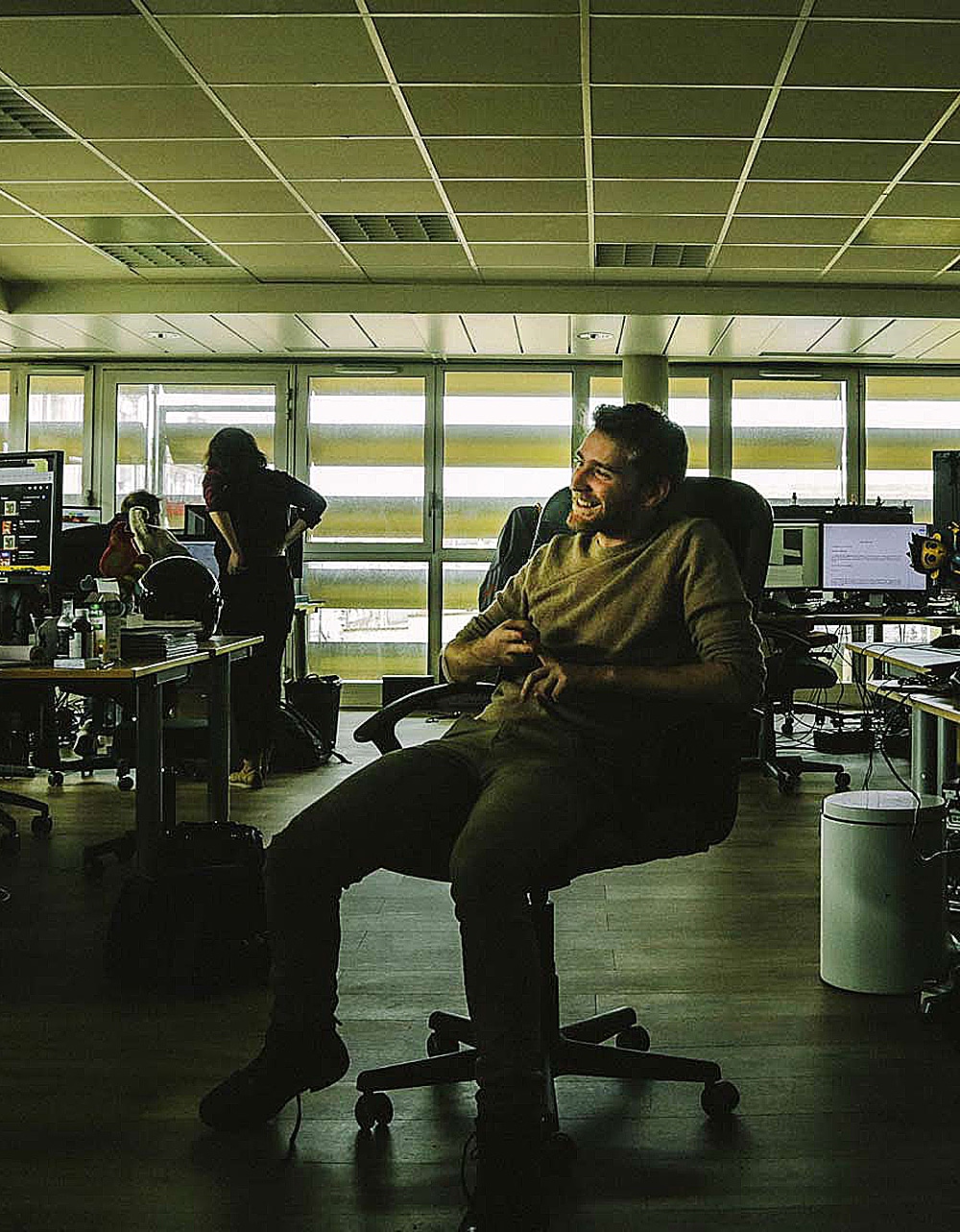
Racontez-nous, quelles sont les grandes étapes de votre parcours ?
Je suis passé par Sciences Po Lyon, école dans laquelle j’ai axé ma fin de formation sur la communication et la culture, et notamment le jeu vidéo, à travers mes sujets de recherches de4e et 5e année.
Cela m’a permis de trouver un premier stage pour aider au lancement d’une campagne de crowdfunding Kickstarter d’un jeu vidéo indépendant. En fin de 5e année, j’ai également fait du volontariat auprès de Capital Games pour aider sur le stand Jeux Made In France de la Paris Games Week. C’est à cette occasion que j’ai rencontré Steve Filby, responsable de la communication et du marketing des jeux du studio bordelais Motion Twin et qui cherchait justement de l’aide pour le lancement de l’accès anticipé de leur prochain jeu.
Ce jeu, nommé Dead Cells, a rencontré un succès critique et commercial assez extraordinaire, notamment aux Etats Unis et en Chine. J’ai ainsi pu poursuivre avec Steve après mon stage avec un CDI en tant que Marketing Manager. En 2019, Motion Twin décide d’arrêter de mettre à jour Dead Cells pour se consacrer à leur prochain projet. Nous créons alors avec Steve et deux autres associés Evil Empire pour prendre la suite de Motion Twin et continuer à faire vivre Dead Cells par le biais d’ajouts de contenu, de portages sur de nouvelles plateformes, etc.
Pourquoi avoir choisi de travailler pour la culture ?
Ma première vocation se situait davantage dans la diplomatie et la défense. Malheureusement, l’image fantasmée que je m’était fait de ces milieux correspondait peu à la réalité. J’ai donc choisi de recentrer ma carrière sur mes passions, le livre, la bande dessinée, les jeux de société, et… les jeux vidéos.
L’image fantasmée que je m’était fait de ces milieux correspondait peu à la réalité. J’ai donc choisi de recentrer ma carrière sur mes passions, le livre, la bande dessinée, les jeux de société, et… les jeux vidéos
J’assure également le poste de Directeur de la création, et en ce sens, je valide l’ensemble des designs, concepts, mécaniques, et art assets […] avant qu’ils soient implémentés. Je suis également censé garantir la cohérence et la qualité de l’ensemble.
En quoi consiste votre mission et quels en sont les enjeux ?
J’occupe aujourd’hui différents rôles dans Evil Empire. En tant qu’associé, il me revient de participer et de discuter les grandes orientations stratégiques de l’entreprise (croissance, projets, recrutements, etc.) mais aussi des questions logistiques du quotidien (accès au parking, horaires de travail pour les équipes, etc.).
J’assure également le poste de Directeur de la création, et en ce sens, je valide l’ensemble des designs, concepts, mécaniques, et art assets (mes excuses pour les termes en anglais) avant qu’ils soient implémentés. Je suis également censé garantir la cohérence et la qualité de l’ensemble. Je passe également une bonne partie de mon temps à faire un travail de game designer, c’est-à- dire à réfléchir et à définir des concepts pour des niveaux, enemis, objets qui seront par la suite implémentés.
Côté marketing, aspect dans lequel j’ai gardé une forte implication, je suis responsable du planning des mises à jours et sorties, et du respect des délais (autant que possible), de la gestion des partenaires externes pour les assets marketings majeurs (key art, trailers, etc.). Il m’arrive également de réaliser moi-même les vidéos ou trailers en cas d’urgence.
Des différences entre ce que vous imaginiez et la réalité du terrain ?
Le travail de Marketing Manager est relativement proche de ce qu’on peut imaginer – stratégie, plan de comm, ciblage d’audience, réalisation des assets écrits ou vidéos, présence sur les réseaux sociaux, animation de communautés, etc. En ce qui concerne la partie production, la complexité et le temps que demande la moindre création demande me surprend toujours aujourd’hui. Dans le jeu vidéo, 6 mois c’est déjà demain..
Comment vous voyez-vous d’ici 3 à 5 ans ?
Au même poste, avec un peu de chance ! Tout dépendra de l’évolution et de la croissance d’Evil Empire – si l’entreprise fonctionne aussi bien qu’on l’espère, ma mission sera probablement davantage transversale (sur différents projets) qu’aujourd’hui.
Êtes-vous satisfait de votre niveau de rémunération ?
Complétement.
Si vous étiez Ministre de la culture, que changeriez-vous en premier ?
J’ai perdu le contact avec la politique culturelle depuis quelques années déjà, je ne me sens donc pas légitime à donner des leçons. J’imagine que je renforcerait les financements des initiatives des “vulgarisateurs” culturels, qui me semblent des clefs bien plus efficaces pour sensibiliser sur ces sujets que n’importe quel cours à l’école.
Dans le contexte plus spécifique au jeu vidéo, il faudrait probablement promouvoir un comité, à l’image du CNC, mais indépendant du CNC justement, qui pourrait examiner les dossiers de demande de financement des studios français. Le cinéma et le jeu vidéo répondent à des contextes et des enjeux différents, cela me semble peu logique de vouloir lier les deux.
Ce qui a été pour vous un déclic culturel ?
Spec Ops: The Line. J’ai découvert ce jeu en m’attendant à un shooter fade et déjà-vu sans intérêt, sans savoir que j’étais en train de jouer à ce qui deviendra un jeu culte malgré un lancement commercial manqué. Un trip violent et psychédélique, inspiré d’Apocalypse Now, qui finit à mon sens par dépasser son maître, tant son message est renforcé par le gameplay propre au jeu vidéo.
Parler de Spec Ops, c’est peut-être déjà un peu le gâcher, préparer les interlocuteurs à une expérience particulière là où la claque n’est réelle que lorsque les attentes sont au plus bas et que le jeu prend complètement ses joueurs par surprise. Mais ne pas en parler, ce serait limiter cette pépite à une petite niche de privilégiés.
Ce jeu est important pour moi, pour l’expérience unique qu’il propose, et pour l’ambition qu’il m’a donné de créer, un jour moi aussi, un jeu qui raconte une histoire qui ne peut pas être racontée par un livre ou par un film.
Dans le contexte plus spécifique au jeu vidéo, il faudrait probablement promouvoir un comité, à l’image du CNC, mais indépendant du CNC justement, qui pourrait examiner les dossiers de demande de financement des studios français.
Crédits photographiques: Clémence Postis, Revue FarOuest, article du 15 octobre 2019.
